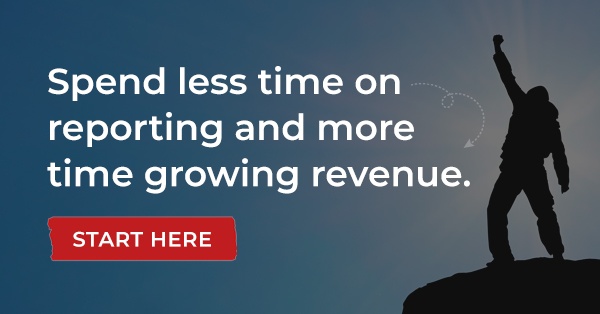How to manage the accounting shortage in 2022

The COVID-19 pandemic disrupted the economy, the labor force, and almost every other aspect of life.
The continued shortage of accountants is just one of many ripple effects we’re seeing, but it was a problem long before 2020.
Here’s a closer look at what’s causing this shortage and what your company can do to minimize the impact on operations.
What’s causing a shortage of accountants?
The ‘Great Resignation’ puts industries in turmoil
The accounting and finance field certainly isn’t the only industry experiencing a talent shortage.
As pandemic restrictions are lifted and workplaces begin acclimating to a new normal, it’s difficult to escape news headlines about unprecedented rates of employees quitting — a phenomenon dubbed the "Great Resignation".
Over 4 million Americans quit their jobs in August, according to the US Bureau of Labor Statistics.
According to an August 2021 PwC survey, 88% of U.S. executives are seeing higher turnover than normal in 2021. Among CFOs, 36% are very concerned about turnover remaining high indefinitely, while 45% are somewhat concerned about turnover but expect it to return to pre-pandemic levels more quickly.
That’s a far cry from the sentiments in a June 2020 PwC survey, in which 24% of CFOs said they anticipated layoffs and 30% expected to implement temporary furloughs.
Much of the understaffing stemming from 2021's mass exodus is occurring in accommodation and food services (5.7%), leisure and hospitality (5.3%), and retail trade (4.1%). Professional services industries like accounting haven’t seen such profound effects — at least not directly.
The Great Resignation has, however, drastically reduced staffing in an industry that helps determine whether millions of Americans can stay in the workforce: child care.
Childcare workers, typically on the lower end of the wage spectrum, are leaving the field for better-paying, less stressful jobs in food service and retail. This makes it more difficult for many parents to return to work.
Some people — 309,000 women in September 2021 alone — have left the workforce altogether.
Baby Boomers are retiring in record numbers
Another mass exodus affecting the workforce as a whole is the retirement of Baby Boomers at a rate that, in late 2020, was about 30% higher than the average number of retirements for the nine years prior.
And there's not likely to be an influx of college graduates to breathe new life into the labor force anytime soon.
Last year, it appeared the pandemic could negatively affect college retention and persistence rates, leading to even fewer graduates entering fields that require a degree over the next several years.
To some degree, that fear has come true.
A study published in July 2021 by the National Student Clearinghouse Research Center found that 74% of first-time freshmen in fall 2019 returned to college for a second year, a rate that "represents a pandemic-related, unprecedented one-year drop of two percentage points in this important early student success indicator."
There’s a shortage of new accountants entering the field
In some ways, accounting has had more opportunity than other industries to prepare for major disruptions to its workforce.
In 2015, the American Institute of CPAs published a document showing that 75% of its members would be eligible for retirement in 2020. And there’s a shortage of accountants entering the field to replace them.
It's not all bad news, though. Accounting and bookkeeping services gained 300 jobs in September 2021. Compare that to a loss of 2,400 positions only 10 months earlier.
And the Occupational Outlook Handbook anticipates the accounting and auditing field will grow by 7% between 2020 and 2030.
Some of the issues currently plaguing the accounting industry must be dealt with on a macro level. Professional associations, for example, are in a better position than individual businesses to recruit young people and address the shortage of accountants through publicity campaigns.
They might also be able to advocate for higher education curricula designed to instill accounting graduates with the technological acumen employers are looking for.
There is still plenty, however, that accounting firms and businesses can do to attract top accounting talent and help their existing staff do more with fewer people.
Leaders should have their heads in the cloud
When it comes to recruiting new employees to address the shortage of accountants, investing in new technology is more important now than ever.
While some sectors of the economy are scrambling for ways to dig themselves out of record staffing deficits, CPA firms and companies looking for public accountants have the opportunity to use technology to their advantage.
Technology — specifically, cloud-based software — allows businesses to offer their accounting employees flexibility, which, in addition to compensation and benefits, is one of the top incentives for candidates, according to the August 2021 PwC survey.
A good work-life balance is just as important.
Cloud-based accounting software that integrates with other hybrid collaboration tools makes it easy for finance team members to be productive anywhere. Instead of spending 40 hours a week in the office, they can opt to work remotely a few days a week.
“An all in-person workplace is no longer the norm,” the August 2021 PwC survey states. “The challenge for leaders: bringing out the best aspects of face-to-face teaming for all employees, whether in the office or not.”
Companies that truly jump on board with technological innovation may eventually feel comfortable offering fully remote positions in their finance departments.
Instead of competing with other businesses for what could be a handful of accounting professionals who are local or willing to relocate, companies offering fully remote work can hire from a much larger talent pool.
Technology can help fill gaps caused by the shortage of accountants
If the shortage of accountants persist in 2022, companies will have no choice but to do more with less. That’s another area where technology can help.
Accounting automation software can eliminate many routine processes, make monthly bookkeeping, revenue recognition and reporting more efficient.
If the labor force doesn’t stabilize soon, companies that embrace digital transformation now will be better able to weather the storm.
And if the situation improves, those same companies will be able to use their fully staffed finance departments’ expertise to add more value to the organization rather than spending so much time on manual work.
This is exactly what the Occupational Outlook Handbook expects for the accounting profession.
"Technological change is expected to affect the role of accountants over the decade," the OOH reads. "With the automation of routine tasks, such as data entry, the advisory and analytical duties of accountants will become more prominent."
Gravity: A stable force for volatile times
Gravity Software is a multi-entity accounting solution that can help your company minimize the impact of accountant shortages.
Built natively on the Microsoft Power Platform, Gravity integrates with all the applications your team needs to analyze and present data in an engaging way, make better decisions, and collaborate across entities — or across the country — in the coming year and beyond.
Want more insight on recruiting and retaining top accounting talent? Read The Financial Professional’s Guide To More Synchronized Accounting.
Gravity Software
Better. Smarter. Accounting


